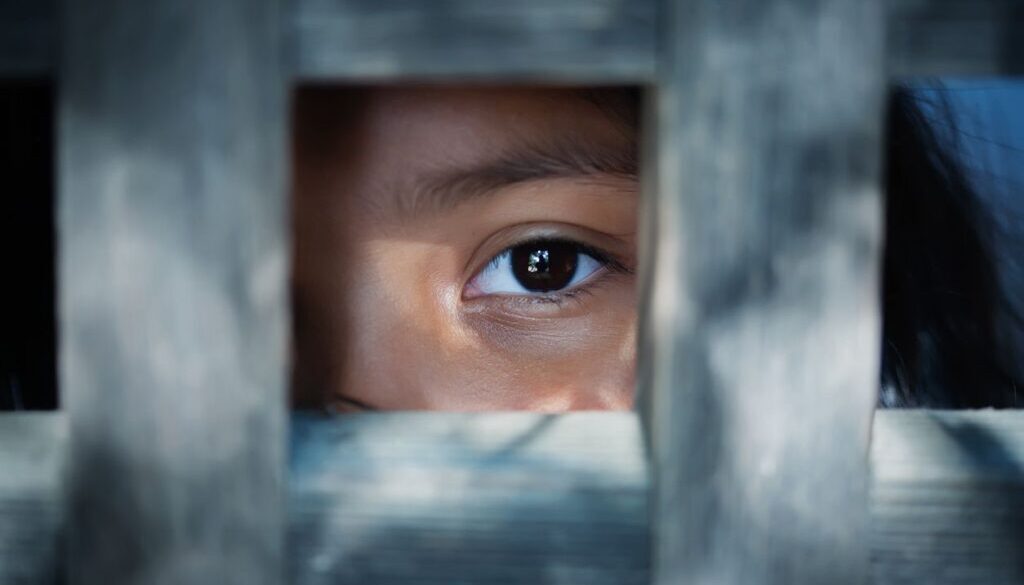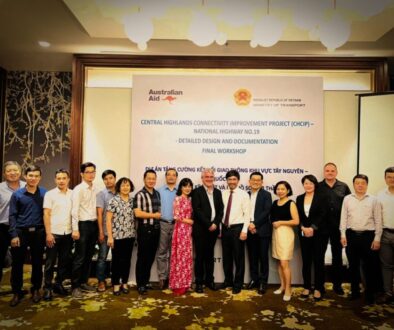68,000 people in Northwest Vietnam to benefit from Aus4Transport HIV/AIDS and Human Trafficking Awareness Campaign
IN BRIEF
As part of the Detailed Design and Documentation (DDD) of the Northern Mountain Provinces Transport Connectivity Project (NMTCP), Aus4Transport has recently developed an HIV/AIDS and Human Trafficking Awareness Campaign, soon to be implemented across several towns and districts of the provinces of Lai Chau, Lao Cai and Yen Bai.
The Northwest region of Vietnam, being the country’s third most affected region by HIV/AIDS and with a concerning high prevalence of human trafficking activities, will be facing increased risks during and after the construction phase of the NMPTCP. Aus4Transport is working hard to build awareness and create a better understanding of these threats and dangers, mitigate their potential impact by supporting local people to make informed decisions and, in turn, reduce the risk of HIV, AIDS, and human trafficking in the Project area. As an important part of the DDD, funded by the Australian Government and conducted in partnership with the Ministry of Transport of Vietnam, Aus4Transport is introducing a comprehensive HIV/AIDS and Human Trafficking Awareness campaign that will engage with about 68,000 people from the key target groups along the project area.
The Northern Mountain Provinces Transport Connectivity Project (NMPTCP), a major road upgrade project funded by the Asian Development Bank (ADB) and the Australian Government through Aus4Transport Program, aims to improve the local connectivity between several towns and districts in the provinces of Lai Chau, Lao Cai and Yen Bai and to the Noi Bai–Lao Cai Expressway.
The Project will provide improved access to basic social services, such as education, health care, job training, and emergency disaster relief, and it will also increase economic and employment opportunities for the people of the north-western provinces, especially the poor and ethnic minorities. However, it also poses heightened risks and dangers for vulnerable groups in the area.
The civil works are expected to take place over 36 months and mobilize a temporary labour force of around 3,000 construction workers, mostly men from other provinces and regions across Vietnam. These circumstances, in which a considerable amount of unaccompanied construction workers with disposable income migrate temporarily to the work site, often increase demand for transactional sex. Lack of knowledge, risky sexual behaviours, such as having unprotected sex with multiple partners, and the socio-cultural power dynamics that prevent some groups from negotiating safe sex, dramatically increase the risk of STI’s and HIV transmission. The groups facing a higher risk are sex workers, young females in the local communities, injecting drug users, construction workers, men who have sex with men, and the stable partners of those construction workers who remained at home.
In addition, the Northwest region is considered a “hot spot” for human trafficking. A large majority of its population lives below the poverty line and belongs to an ethnic minority group, making them especially vulnerable to human trafficking. The strategic geographic location of the area, with many remote and mountainous villages, is popular with tourists and migrant workers. In addition, the proximity to the borders with China and Laos makes for an easier escape route. While boys and young men are not immune, women, girls, and children are the ones most affected by this terrible criminal practice. They are trafficked for different reasons, such as early marriage, forced labour or sexual exploitation.
The HIV/AIDS and Human Trafficking Awareness Campaign Program (HHTAP) has been designed to raise awareness of the risks and dangers to mitigate the potential impact of the project and reduce the incidences of HIV, AIDS and human trafficking. The campaign concept has already been socialised with local authorities through several workshops that took place during the month of March 2021 in Lai Chau, Lao Cai and Yen Bai. The Campaign will focus on three pillars:
1) Strengthen the capacity of local authorities to design, manage and deliver the education programs and community campaigns;
2) Advocate within entertainment establishments and construction contractors in order to create a supportive environment for a successful campaign
3) Deliver a series of information, education and communication initiatives that will promote behaviour change.
The HHTAP, financed under a grant provided by the Australian Department of Foreign Affairs and Trade (DFAT) via the Aus4Transport Program, will be implemented during the construction period of the Northern Mountain Provinces Transport Connectivity Project. It will engage about 68,000 people from key target groups in the project area, aiming to make a real impact on the long-term prevention and incidence of HIV, AIDS and Human Trafficking in the area.




